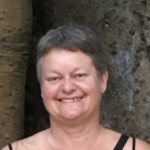Some people make history, some document it and others do both. Bob Krawczyk is an archivist with a history of activism who is now learning about what’s important to the young ones coming up the ranks as he puts together a history display for Pride Week.
The project, a collaboration between the Canadian Lesbian And Gay Archives (CLGA) and Pride Toronto, will be on display on Church St during Pride weekend, a venue that’s usually more about drinking beer and behaving outrageously than about connecting with the past.
“It’s 25 years of Pride, of the first Pride organized by the current Pride committee, otherwise known as 25 years of continuous Pride,” says Krawczyk. He points out that there was a Gay Day on the Toronto Islands in 1971, as well as a few others in the ’70s, though ’81 was when things solidified.
Information like that comes from archivists and Krawczyk is a professionally trained archivist who works as a solutions advisor for Publications Ontario.
His interest in queer history is what prompted him to volunteer for this project, which is meant to make people think about the context of Pride and to raise awareness of the CLGA, which will be moving into a new building in 2006.
In conversation, Krawczyk chats easily about how the Toronto bathhouse raids in 1981 fuelled the beginning of continuous Pride, just like the 1969 Stonewall riot sparked an annual protest that turned into New York Pride.
Krawczyk’s display is meant to remind Pride revellers of the context of why they’re celebrating.
“It’s a [display] that combines text and images in a way that invites people to ponder the diverse meanings of Pride. Ours is lighthearted, intended not to give a whole history but to highlight some of the meanings that Pride has for us.”
For example, they found one photo from the first Pride of an artist group who painted a Pride image.
There are eight panels, including an introduction and panels dedicated to seven themes: Celebration, Protest, Origins, Freedom Of Expression, Culture, Remembrance and Progress.
Members of the working group cover a wide spectrum of ages.
“At 42 I was the old one,” says Krawczyk, who came out to his parents at 16. “There were a lot of younger people. It was interesting working with these people who didn’t know about the bath raids or The Body Politic [the defunct magazine published by Pink Triangle Press, which now publishes Xtra].
“They learned a lot and at the same time the things that were important for them were not for me. Things that I felt passionately in ’82 I now read in the paper like everyone else. Marc Hall, the gay guy who got to go to his prom in Oshawa [in 2003] was a big for one of the young people. We came to terms with each other and learned from each other.”
Krawczyk still writes letters to newspapers and politicians about gay issues, but much less than he used to. In 1990 he moved to Toronto from Ottawa where he volunteered for organizations like Gays Of Ottawa, which was founded in 1971. (It became Association Of Lesbians And Gays Of Ottawa in 1989 and finally closed its doors in 1995.)
“In ’86-’87 my partner and I had a case with Carlton University to recognize our relationship. He was older and worked there and I had become a student. If they had recognized our relationship I wouldn’t have had to pay tuition. My partner’s union took it on as a case between the union and the university. The university fought it and won but it got a lot of publicity in Ottawa.”
When he’s not digging up the past, Krawczyk can been seen bicycling around town photo-documenting heritage buildings. He’s founded an informal gay subgroup of people interested in urban planning and design issues. (The discussion group is hosted at Urbantoronto.ca; you have to register first.)
He’s lived in City Park Co-op for 12 of his 15 years in Toronto, with a partner of seven years. Talking about his partner, he chuckles and points out that much has changed since the days when homos called their lovers “roommates.”


 Why you can trust Xtra
Why you can trust Xtra


